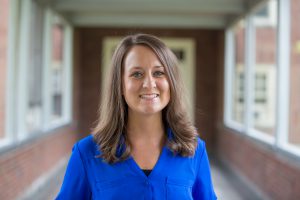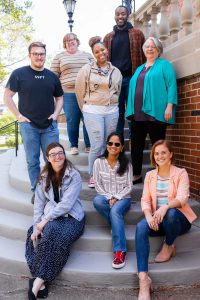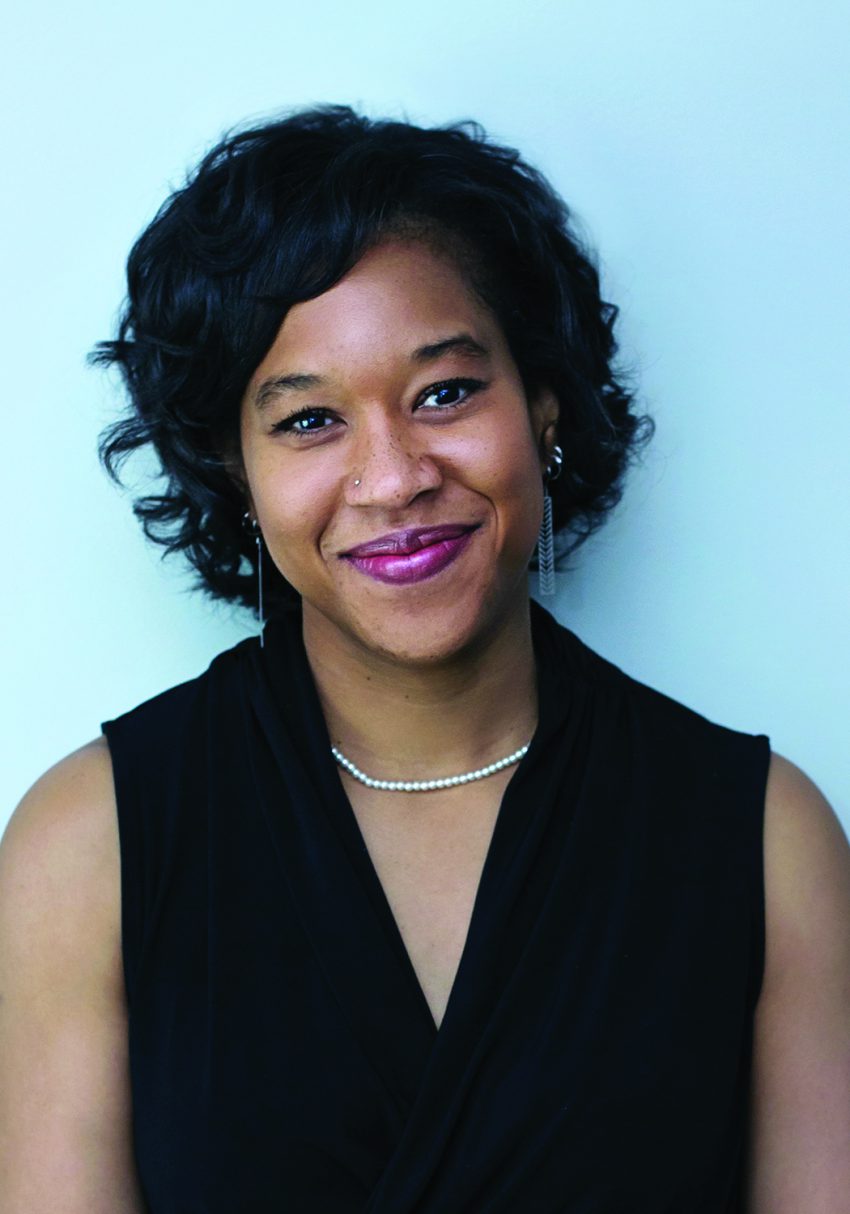Being formed in a seminary is a journey unlike anything else. Students seek theological education for a variety of reasons: personal spiritual growth, preparing to serve their communities as public leaders, seeking ordination for ministry in a specific tradition, or in pursuit of a sense of call that is loud but not yet clear. Just as spirituality is integrated throughout all dimensions a person, so too theological education touches many aspects of a person’s life.
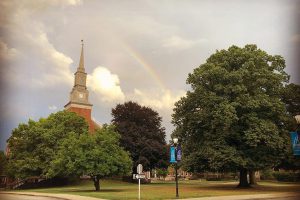
While coursework challenges students intellectually and equips them with many practical tools for context-specific ministry, alongside the classroom curricula, the umbrella of Academic Affairs also includes the office of the Rev. Ayana Teter, associate dean of students and formation. Ayana and her team at the Office of Student Affairs nurture the professional, spiritual, and ecclesial dimensions of student development at PTS through one-on-one support and programmatic offerings that complement classroom formation.
“My purpose here is to help form and equip leaders—and future leaders—for public and professional ministry,” Ayana says. “That takes many forms—leading a nonprofit, theological writing, pastoring a congregation, hospital chaplaincy, founding a new worshiping community. As time goes on, people are coming up with more and more creative ideas for how to engage society spiritually. I come alongside the faculty’s work of theological and intellectual formation and speak to professional, spiritual, and ecclesial dimensions of being a public leader.”
Formation for Different Forms of Ministry
To support the diversity of callings present in the PTS student body, Ayana’s office provides a mix of group and individual programming that address both targeted skill-building for specific vocational pathways and cultivating broadly shared practices that support any form of ministry. For example, Ayana leads vocational discernment practices, such as group examens, and brings in experts to provide practical workshops, like a financial seminar led by a representative from the PC(USA) Board of Pensions. “I find Christian leaders and bring them to PTS so that they can provide wisdom, facilitate gatherings, do spiritual direction, and lead workshops on important things students need to know,” Ayana says, “so that students can be exposed to saints of the Church who are actively doing the work of ministry and learn from them.” She also names hospitality as a staple of her office’s role: “setting a table” through community life events. “People need places of rest and welcome so they themselves can know how to provide these,” she says. “Hospitality fosters the capacity for deep listening and welcome—baseline skills to communicate the gospel. Seminary can be a place where people learn that.”
Formation in Community
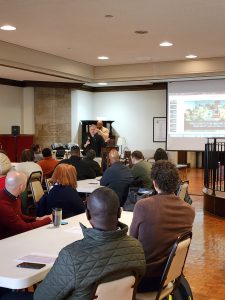
A significant responsibility fulfilled by Ayana’s team is preparing programming for the seminary’s four-times-yearly Hybrid Gatherings, during which distance learners and residential students join together for two-and-a-half days of in-person programming in Pittsburgh. “We work all year to make sure each gathering is a time that not only captures the essence of seminary formation but has really thoughtful and highly curated opportunities for students to encounter diversity of peoples and opinions in a space, to do exercises in discernment and reflection, to practice the art of praying together, and to worship with leaders from every branch of the Christian family tree. We find and partner with ministries throughout the city so we can bring students to see the ways Jesus is about the work of redemption in this city and enter into spaces of welcome and challenge, which is vital to future ministry.”
Forming Public Spiritual Leaders

As meaningful as these formation initiatives are, individual pastoral counseling is the part of Ayana’s job that is closest to her heart. Before joining PTS, Ayana served in a variety of ministry positions within the PC(USA), including pastoral associate, head of staff, church planting team member, and denominational official. Through her role as associate executive presbyter of Pittsburgh Presbytery especially, she discerned a call to nurture public spiritual leaders, and she says that this time “pastoring pastors” informs her work at PTS the most. In addition to managing institutionally critical communications, such as facilitating Title IX cases and working on academic degree accreditation forms, Ayana offers one-on-one pastoral coaching to students. She especially loves supporting the process of vocational discernment, finding placements that “fit” a student’s specific array of gifts and passions, and mentoring seminarians through the spiritual transformation that is a part of the seminary journey.
“My passion and heart is for public spiritual leaders,” Ayana says. “I love to see people grow in their capacity to trust God. I try to nurture growth in spirituality—ability to listen and discern, importance of sabbath rest, ability and desire to pray—both for godliness and for the community. I love to see someone move from ‘yeah, yeah, I know I’m supposed to pray’ to ‘I’ve really been praying about this, and I know I need God’s leading to do this work.’ I believe the work of loving God’s people, speaking the truth about who God is, and bearing witness to the risen Christ is difficult but rewarding and holy, and I want our students to have every good chance at going out into the world and leading faithfully and competently.”
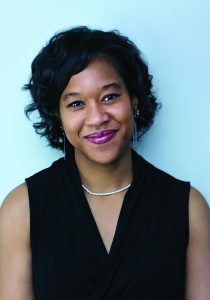 The Rev. Ayana Teter is associate dean of students and formation at Pittsburgh Theological Seminary. She has served in a number of pastoral and denominational leadership roles within the PC(USA), including a five-year tenure as associate executive presbyter of Pittsburgh Presbytery, during which she developed deep connections with the denomination’s 1001 New Worshiping Communities initiative. Rev. Teter holds an M.Div. from Austin Presbyterian Theological Seminary and is pursuing a D.Min. at Pittsburgh Theological Seminary. She is an ordained Minister of Word and Sacrament in the PC(USA).
The Rev. Ayana Teter is associate dean of students and formation at Pittsburgh Theological Seminary. She has served in a number of pastoral and denominational leadership roles within the PC(USA), including a five-year tenure as associate executive presbyter of Pittsburgh Presbytery, during which she developed deep connections with the denomination’s 1001 New Worshiping Communities initiative. Rev. Teter holds an M.Div. from Austin Presbyterian Theological Seminary and is pursuing a D.Min. at Pittsburgh Theological Seminary. She is an ordained Minister of Word and Sacrament in the PC(USA).
Read Next
